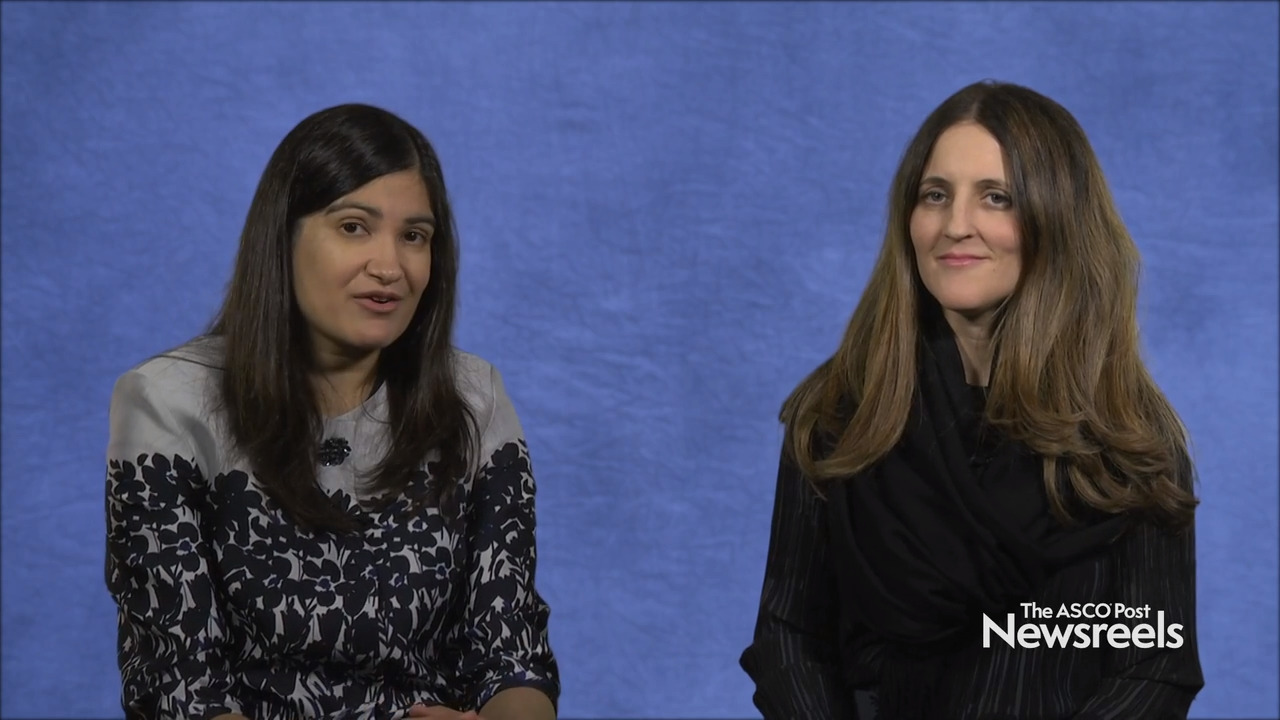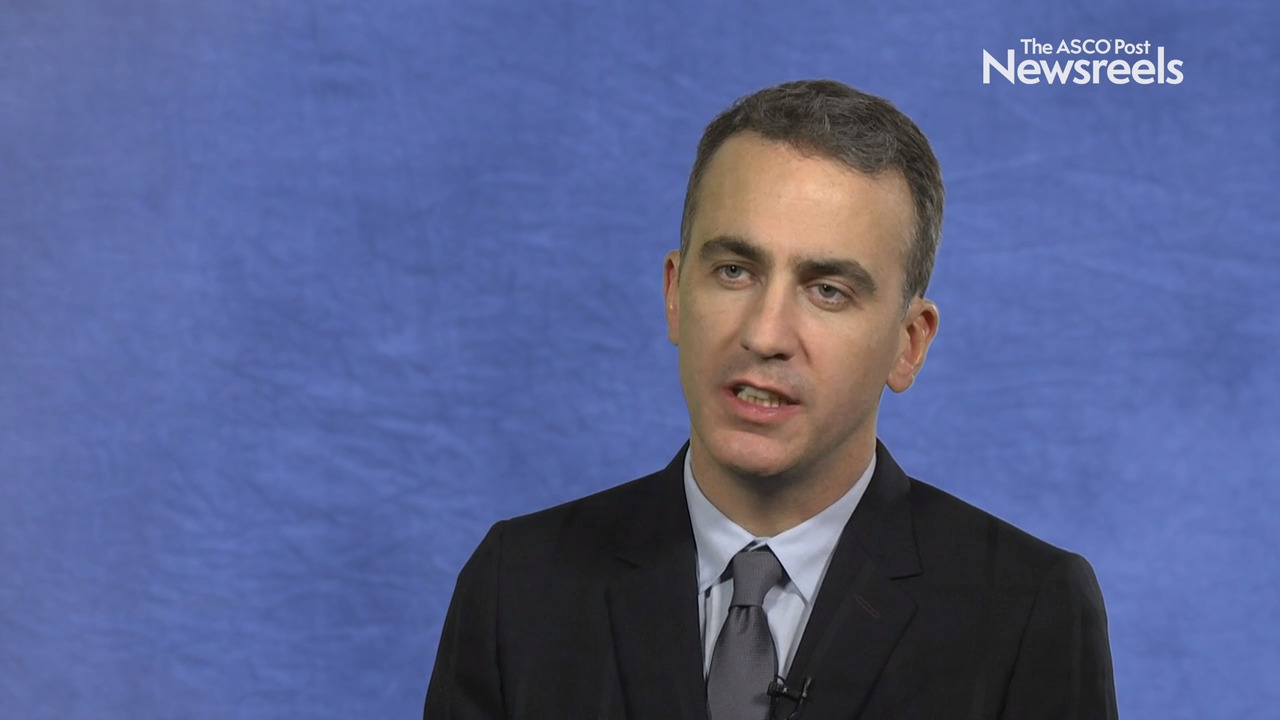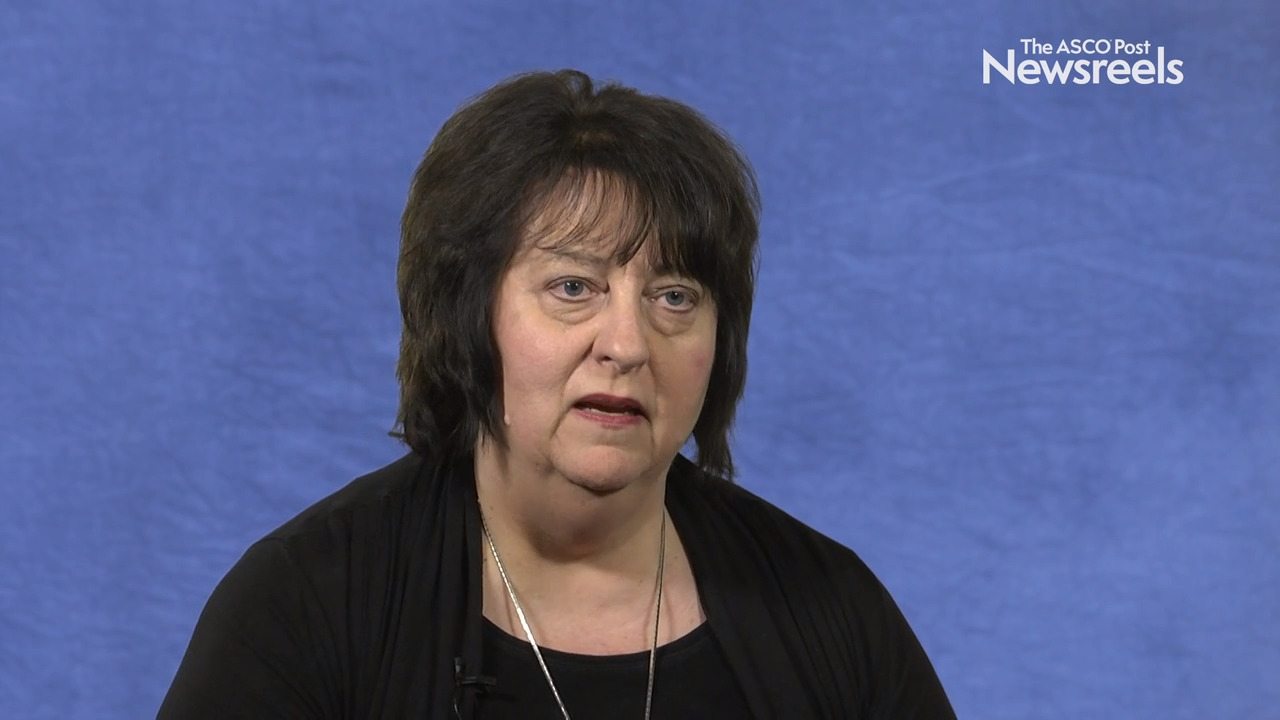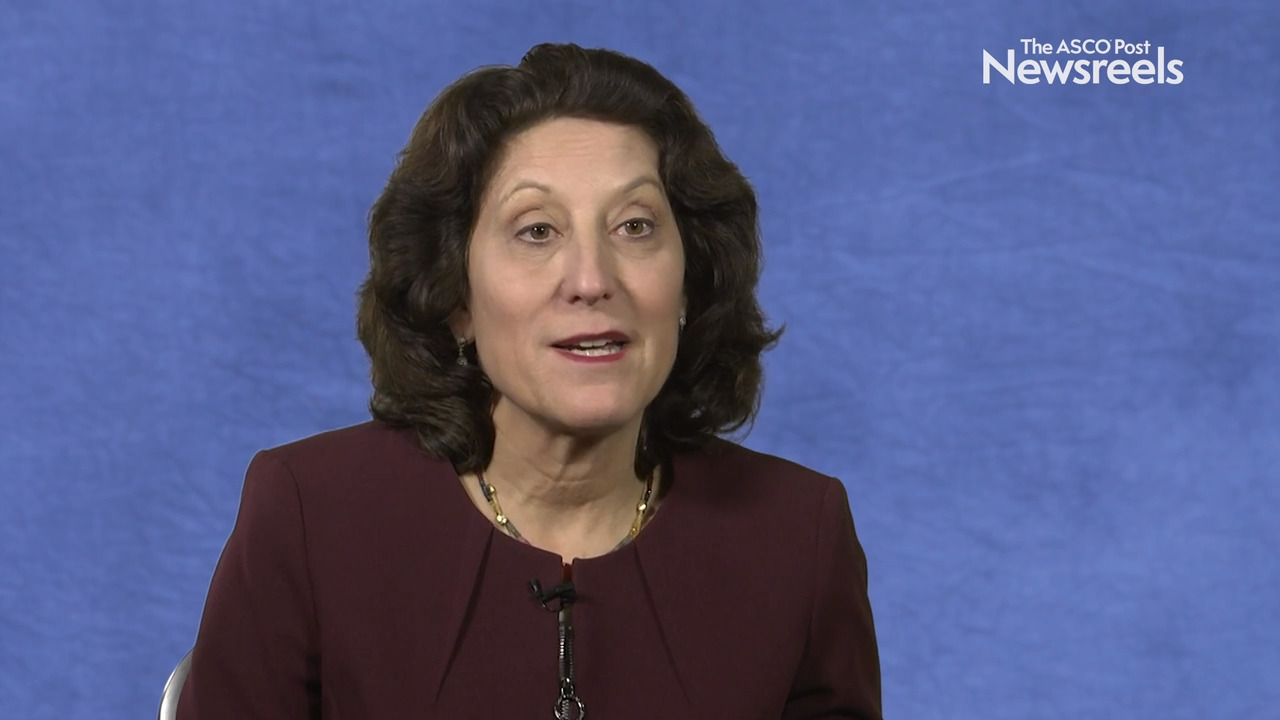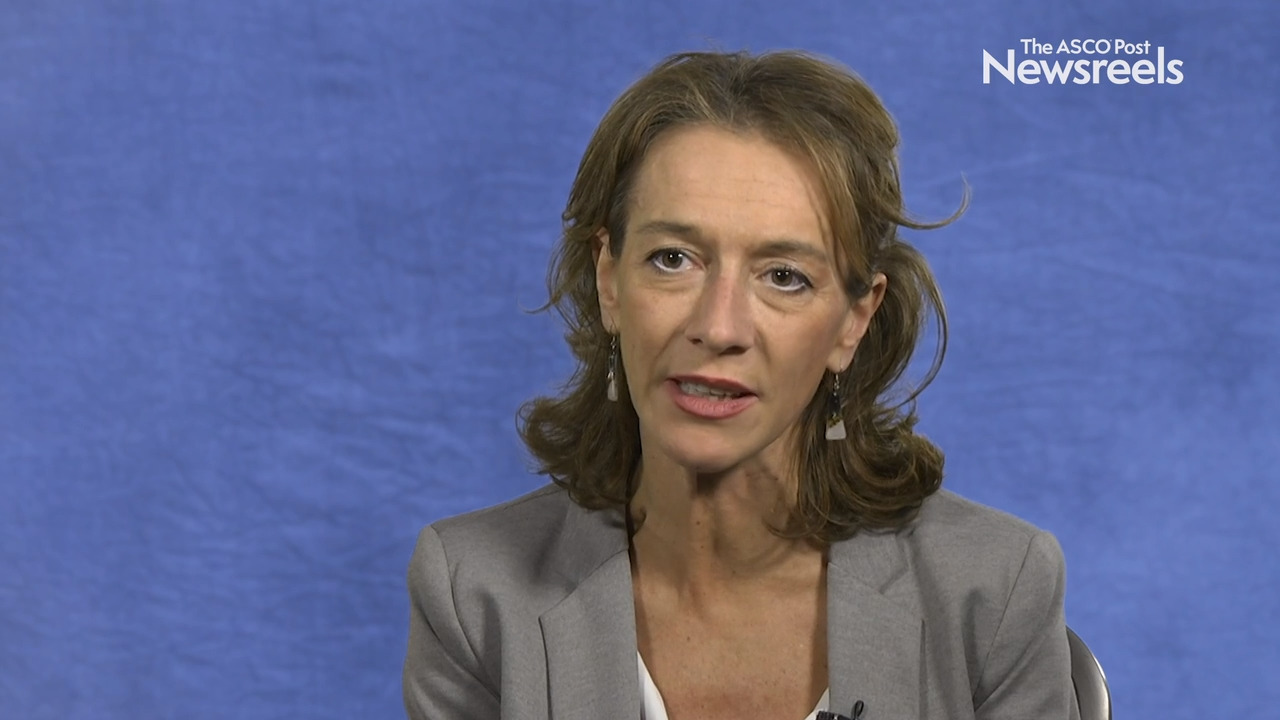Shoshana M. Rosenberg, ScD, on Quality of Life and the Impact of Breast Cancer Surgery
2018 San Antonio Breast Cancer Symposium
Shoshana M. Rosenberg, ScD, of Dana-Farber Cancer Institute, discusses her study findings on the lower quality of life associated with mastectomy, and the need for intervention and timely referrals to supportive resources, especially for underserved populations (Abstract GS6-04).
Reshma Jagsi, MD, DPhil, of the University of Michigan, and Rachel A. Freedman, MD, MPH, of Dana-Farber Cancer Institute, discuss the twin challenges of overtreating people with cancer and the missed opportunities and dangers of undertreatment.
François-Clément Bidard, MD, PhD, of the Institut Curie and the University of Versailles, discusses phase III study findings on the clinical utility of circulating tumor cell count as a tool to choose between first-line hormone therapy and chemotherapy for estrogen receptor–positive, HER2-negative metastatic breast cancer (Abstract GS3-07).
Kathy S. Albain, MD, of Loyola University Stritch School of Medicine, discusses study findings on race, ethnicity, and patient outcomes in hormone receptor–positive, HER2-negative, node-negative breast cancer (Abstract GS4-07).
Hope S. Rugo, MD, of the University of California, San Francisco, summarizes a spotlight session she chaired, which included discussion of new immunotherapy drug combinations, predictive factors, and the immune microenvironment.
Eva M. Ciruelos, MD, PhD, of the University Hospital 12 de Octubre and the SOLTI Group, discusses study findings on palbociclib and trastuzumab in postmenopausal patients with HER2-positive metastatic breast cancer (Abstract PD3-03).
